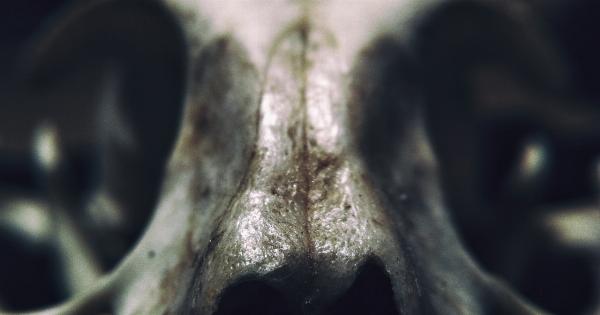Dreams have always fascinated human beings. These mysterious nighttime experiences can transport us to unimaginable scenarios, leaving us puzzled when we wake up.
While dreams can occur during any stage of sleep, research suggests that the strangest and most vivid dreams tend to happen at a specific hour. In this article, we will explore the phenomenon of strange dreams and discuss the hour at which they are most likely to occur.
The Science of Dreams
Before delving into the specific hour of strange dreams, it is crucial to understand the science behind dreaming. Dreams primarily occur during the rapid eye movement (REM) stage of sleep, which is one of the four stages of the sleep cycle.
During REM sleep, our brain activity increases, resembling that of wakefulness. This is the phase where most dreaming takes place.
REM Sleep Patterns
While REM sleep occurs throughout the night, its duration and intensity vary over the sleep cycle. In the first half of the night, REM sleep cycles are relatively short, usually lasting around 10 minutes.
As the night progresses, REM sleep periods become longer, lasting up to an hour.
The Time of Strangeness
Studies have found that the strangest and most bizarre dreams typically occur during the final REM sleep period of the night, which usually happens in the early morning hours before waking up.
This is because the REM stage becomes longer with each cycle, making it more likely for us to enter a dream state during this time. This extended REM period allows for more elaborate and memorable dreams to take place.
The Power of Circadian Rhythms
Circadian rhythms, also known as our internal body clocks, play a significant role in determining the hour at which we experience the strangest dreams.
Our bodies are regulated by these rhythms, which control various biological processes, including sleep-wake cycles. The circadian rhythm reaches its lowest point during the early morning hours, which coincides with the extended REM sleep period. This synchronization enhances the likelihood of vivid and strange dreams during this time.
Factors Affecting Dream Content
While the hour of the night has a significant impact on dream content, other factors can also influence the nature and strangeness of our dreams.
Stress, anxiety, emotional experiences, and external stimuli before sleep can all contribute to dream content. Additionally, certain medications, substances, and sleep disorders like sleep apnea may disrupt normal sleep patterns, affecting dream experiences as well.
Interpreting Strange Dreams
Interpreting dreams has been a subject of fascination for centuries. While many theories and approaches exist, dreams are considered highly subjective experiences.
Their meanings can vary greatly depending on personal experiences, cultural backgrounds, and individual perceptions. Therefore, interpreting strange dreams is a unique and personal journey that requires introspection and self-analysis.
The Significance of Dreaming
Despite the strangeness of dreams, they serve important purposes. One of the primary functions of dreaming is to process and consolidate information gathered throughout the day.
Dreams provide an opportunity for our brains to organize memories, make connections, and resolve emotional conflicts. They can act as a powerful tool for understanding our subconscious mind and navigating our waking lives.
The Role of Lucid Dreaming
In some cases, individuals may experience lucid dreams during the hour of strange dreams. Lucid dreaming is the ability to become aware that you are dreaming while still in the dream state.
This heightened state of awareness allows individuals to control and manipulate the events of their dreams. Lucid dreaming can be a fascinating phenomenon, providing individuals with a sense of control and exploration within the dream realm.
Conclusion
While dreams can occur during any stage of sleep, the hour at which we experience the strangest dreams is typically during the final REM sleep period before waking up in the early morning hours.
The synchronization of extended REM sleep and the lowest point of our circadian rhythm during this time contribute to the vivid and bizarre nature of these dreams. Nonetheless, dreams remain highly subjective experiences, influenced by various factors and open to personal interpretation.






























